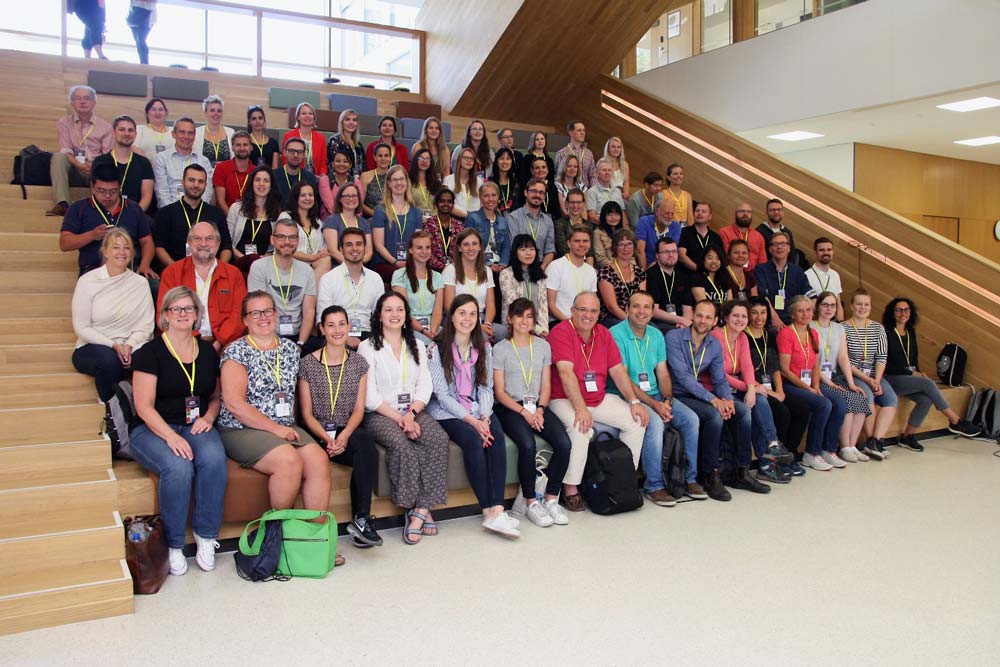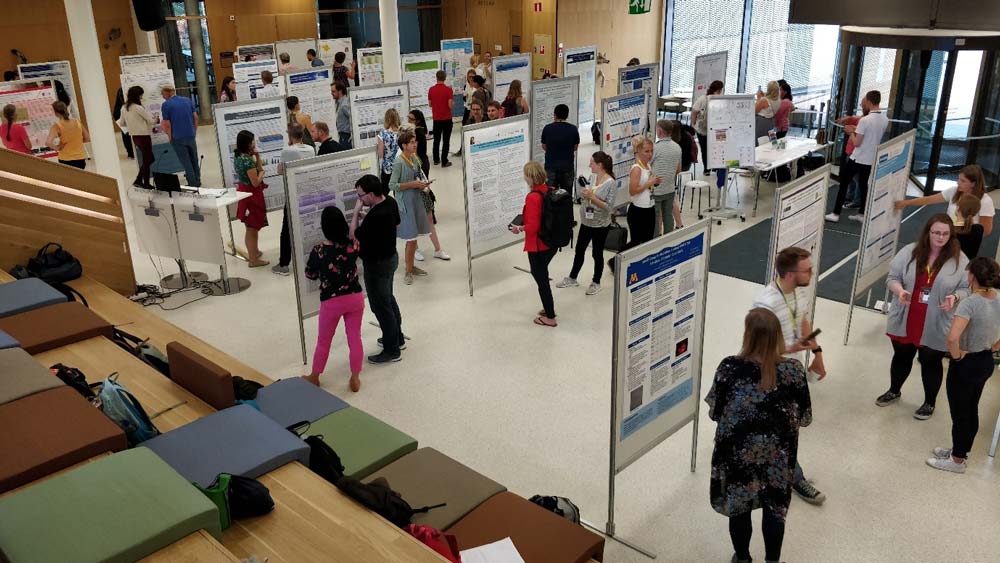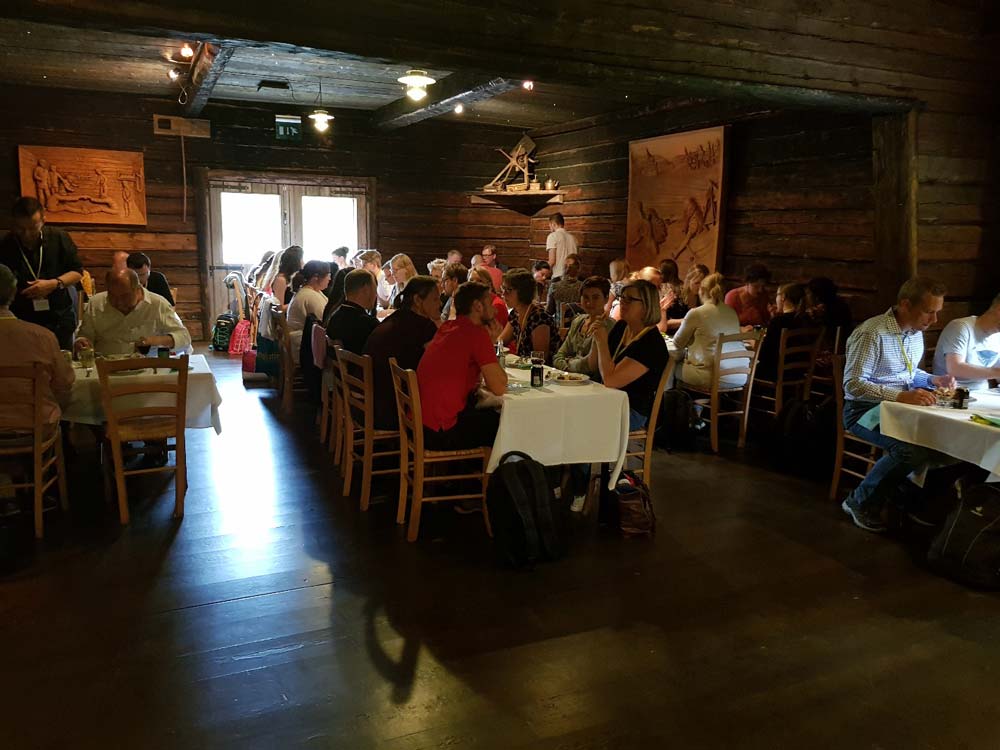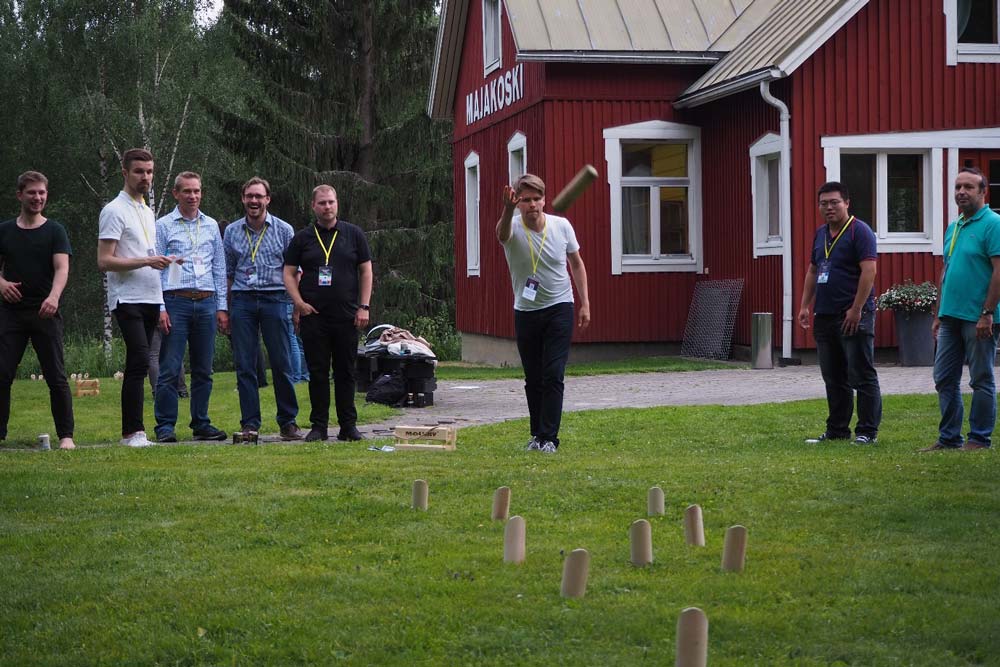The 15th ESERA Summer School was held in the city of Jyväskylä, Finland from June 25 to July 1, 2018. Jyväskylä is located in the west of Finnish Lakeland, 270 kilometres north of Helsinki. It is the largest city in the province of Central Finland and it is the modern and youthful home of 140,000 residents. About twelve percent of the residents are studying (14 500) or working (2500) at the University of Jyväskylä. The University is an important agent in the field of Finnish education today but also historically. The foundations of the University of Jyväskylä lie in the first Finnish-speaking teacher training college, Jyväskylä Teacher Seminary, established in 1863 by Uno Cygnaeus. He is often called “the Father of the Finnish Primary School System”.
ESERA Summer School 2018 intrigued people all around the world. We received 79 student and 39 staff applications from 23 countries. After peer reviewed selections, 48 students from 20 countries from Europe, America and Asia took part in Jyväskylä Summer School (Fig. 1). Likewise, difficult choices had to be made with the many excellent staff applications, but finally, 19 staff members from nine countries acted as group coaches, lecturers and workshop leaders. Staff members were selected based on their experience of supervision at PhD level and with a view to ensure international participation.

Figure 1. ESERA students and staff in the big stairs of the summer school venue Ruusupuisto (the building of Faculty of Education, Finnish Institute for Educational Research, and Open University)
The Summer School was organized by the team of six members from the Department of Teacher Education and Finnish Institute for Educational Research (Fig. 2). All team members had previously participated in an ESERA summer school as a student and/or staff member.

Figure 2. The organizing committee from left to right: Prof. Jouni Viiri, Dr. Pasi Nieminen (leader of the organizing committee), PhD student Kaisa Jokiranta, PhD student Joni Lämsä, Dr. Antti Lehtinen, and PhD student Anna-Leena Kähkönen.
ESERA Summer School program was intensive including five hard, long and productive working days with cosy, informal evening activities. Students worked daily in seven small groups giving and getting feedback on their PhD studies. The small groups were named based on Finnish wild animals: Bears, Wolves, Lynxes, Elks, Foxes, Swans, and Capercaillies. Also, the lectures took place daily as well as workshops (see the list in the end). In addition to the small group presentations and discussions, students presented their work in a poster session (Fig. 3).

Figure 3. In the poster session, students had opportunity to discuss with peers and coaches about their PhD studies
In the middle of the hard workweek, we spent a lovely evening in traditional Finnish countryside milieu. We enjoyed vegetarian food (Fig. 4), games (Fig. 5), smoke sauna, outdoor bathtubs, and swimming in the lake at the house Majakoski.

Figure 4. Dinner at the Majakoski’s old Riihi (“riihi” is a traditional cabin for grain drying and threshing)

Figure 5. While the women took the first turn in the sauna, men enjoyed a Finnish throwing game, Mölkky
PLENARY LECTURES
Jan Alexis Nielsen, Denmark:
Generic competences in science teaching: A challenge for practice and a topic for research
Lucy Avraamidou, The Netherlands:
University of Science teacher identity: theoretical and methodological approaches
Ralph Levinson, UK:
The underpinning need for Critical Realism (CR) in contemporary science education
Gillian Roehrig, USA:
Teachers’ conceptions and implementation of integrated K-12 STEM curriculum
Sami Lehesvuori, Finland:
Dialogic Teaching in Science – From Practice to Theory
WORKSHOPS
Bob Evans, Denmark & Alexander Kauertz, Germany:
Analyzing the coherence of your PhD research project through an argumentation model
Sari Harmoinen, Finland:
Interpret non-verbal information in videos
Renee Schwartz, USA:
Assessing Knowledge of Nature of Science and Nature of Scientific Inquiry: Data Collection, Analysis, and Reporting
Justin Dillon, UK:
Publishing in science education
Erin Furtak, USA:
Mixed-Methods Approaches to the Study of Teacher Learning in Professional Development Settings
Mathias Ropohl, Germany:
How to develop and analyse a test in science education? An introduction to test development and Rasch analysis
